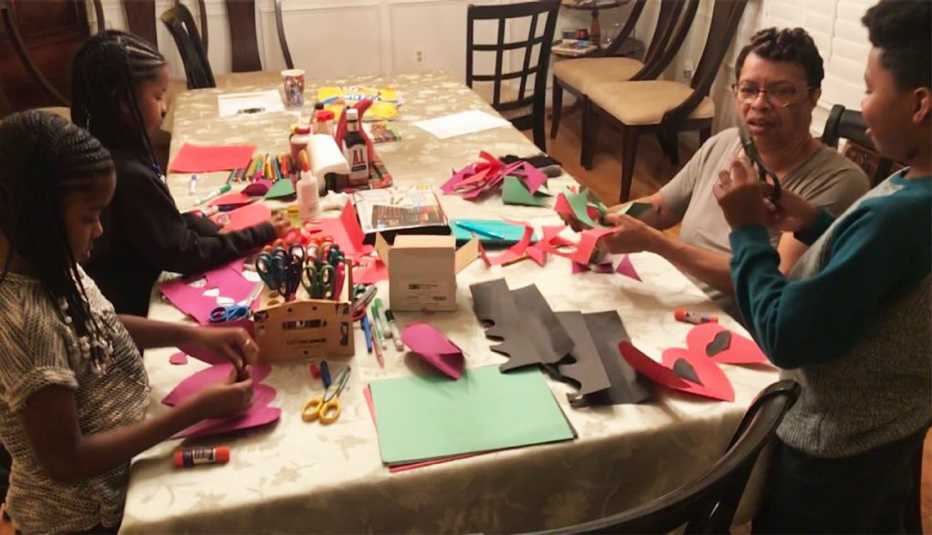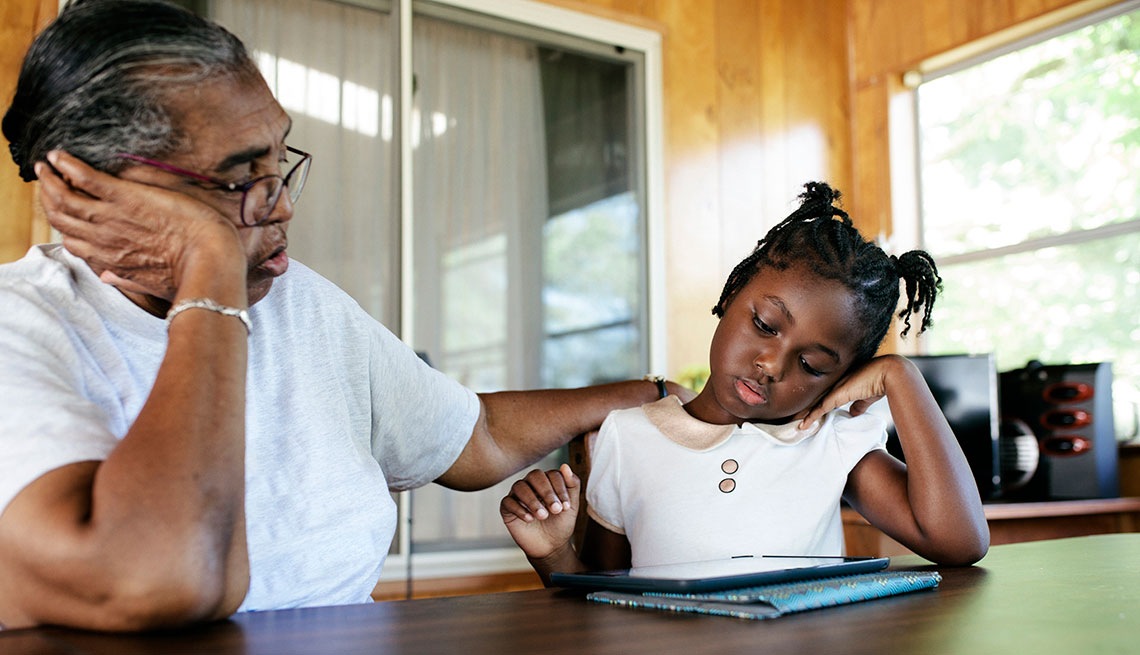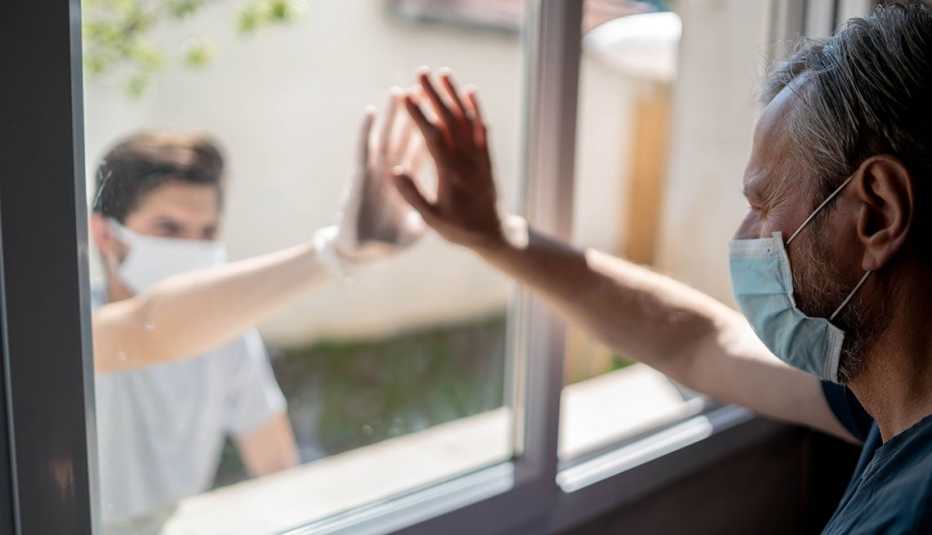Staying Fit
As the new school year gets underway during the pandemic, many parents and grandparents have taken on the roles of teacher, tutor and tech support.
Thousands of K-through-12 schools have opted for virtual learning amid the threat of a coronavirus outbreak, or have created hybrid models combining part-time, in-person instruction and virtual options. With students learning at home and many parents also working from home, grandparents have become pivotal figures in the education process.


AARP Membership— $12 for your first year when you sign up for Automatic Renewal
Get instant access to members-only products and hundreds of discounts, a free second membership, and a subscription to AARP the Magazine.
In addition, more than 2.7 million children live in homes without their parents, where grandparents or other relatives are caring for them, and they're turning to grandparents for help. But most grandparents don't have a background in education and may need support on how to assist their grandchildren with everything from logging into Zoom classrooms to math homework.


"While the reality of supporting children during remote learning can be daunting, grandparents should remember that it is also an opportunity to share their skills, hobbies and time with those they love in new and creative ways, creating lasting memories, says DeLise Bernard, an education expert and consultant.
When public schools began transitioning to distance learning models in March, Bernard launched a Facebook group called Surviving Homeschool to help answer families’ questions about being thrust into the role of teacher. Bernard homeschooled three children for almost a decade and wanted to pass along her tips and tricks. Within two days, the group attracted more than 2,000 members, and now it has over 7,500.
The pivot to remote learning pushed people like St. Augustine, Florida, residents Susan Hatcher, 62, and her husband, Skip Hatcher, 71, into new roles: grandparents doubling as an educational support team for their two grandsons, in sixth grade and first grade.





































































